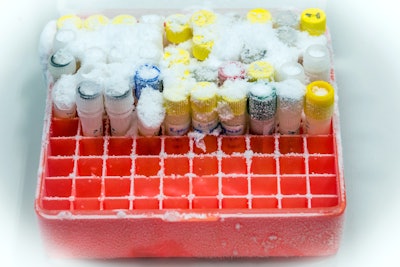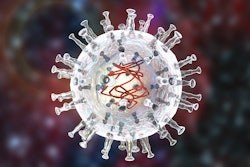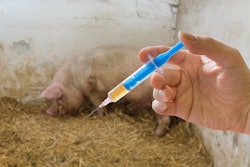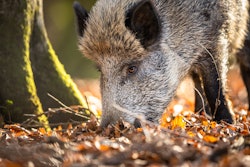
That the African swine fever (ASF) virus — known to be a particularly tough virus to destroy — appears to withstand freezing temperatures as well as heat is no surprise to scientists. But they say it could actually be good news for farms in remote and undeveloped regions that are stricken by the disease.
A new study from Kansas State University found that the ASF virus was still detectable in samples that were repeatedly frozen and stored at 4 degrees Celsius (39.2 degrees Fahrenheit), thawed and then frozen again. Though researchers found that the freeze-thaw cycle reduced the quantity of virus in some samples of swine feces and feed dust samples, the observed reductions in these samples were not so large that they suggest freezing and thawing products such as feed would prevent the virus from spreading, according to Jordan Gebhardt, DVM, an assistant professor of veterinary medicine at Kansas State University.
It does, however, suggest that samples of the virus could be frozen and stored or transported over longer periods of time than previously thought, Gebhardt said.
“If we are in a rural environment, we can store that sample at a refrigerated temperature ... and it will not negatively impact the result of the test,” he said. “We have more flexibility than we knew we had in the past, and that's a good thing if we're in a remote location. We have some flexibility to get good diagnostic results even though we may not be able to get to a lab very quickly.”
Gebhardt said the study grew out of questions that arose as experts at Kansas State University worked with partners, including feed mills, dealing with ASF contamination in Vietnam. The conditions they saw raised several questions about the best practices for handling samples they suspected contained ASF — including questions about the effects of freezing and thawing the samples.
Viruses are typically quite hardy in the face of cold temperatures and freezing, Gebhardt said, and as a DNA virus, ASF is generally tougher than most. It is possible, he said, that the virus could remain viable essentially indefinitely. But thawing and refreezing the virus, which can introduce damage from moisture and ice, can degrade some viruses, potentially impacting the accuracy of diagnostic tests.
For feed or swine producers worried about preventing the spread of the disease, Gebhardt still recommends a biosecurity protocol that involves extended holding periods at high temperatures. Though he acknowledged recent research calling the efficacy of these strategies into question, he said holding grain and other feed ingredients at high temperatures remains the best control strategy available pending research validating another method.
Gebhardt said his team at Kansas State had planned to continue researching best practices for collecting and handling environmental samples of the ASF, but that his team's most recent application for funding was declined amid spending cuts initiated by the Trump administration. This will effectively end their work on the subject unless another source of funding becomes available.
















